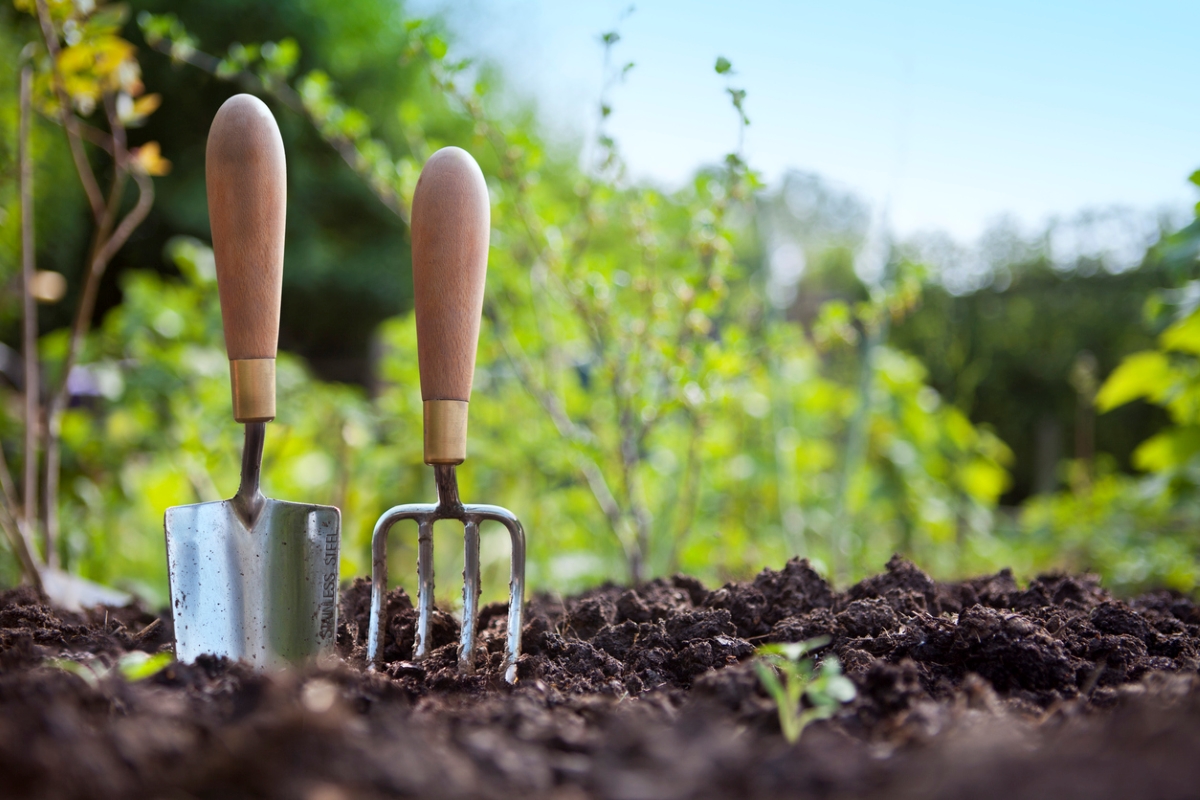We may earn revenue from the products available on this page and participate in affiliate programs. Learn More ›
There are many benefits to gardening, including spending time outdoors, the satisfaction of growing plants from seed, relaxation and, of course, fresh vegetables to eat. Many new hobbies come with considerable start-up costs, but gardening doesn’t have to be one of them. If you’re resourceful, enjoy recycling, and don’t mind socializing with likeminded neighbors, you can get your garden off to a bountiful—and frugal—beginning.
1. Save (on) Seeds
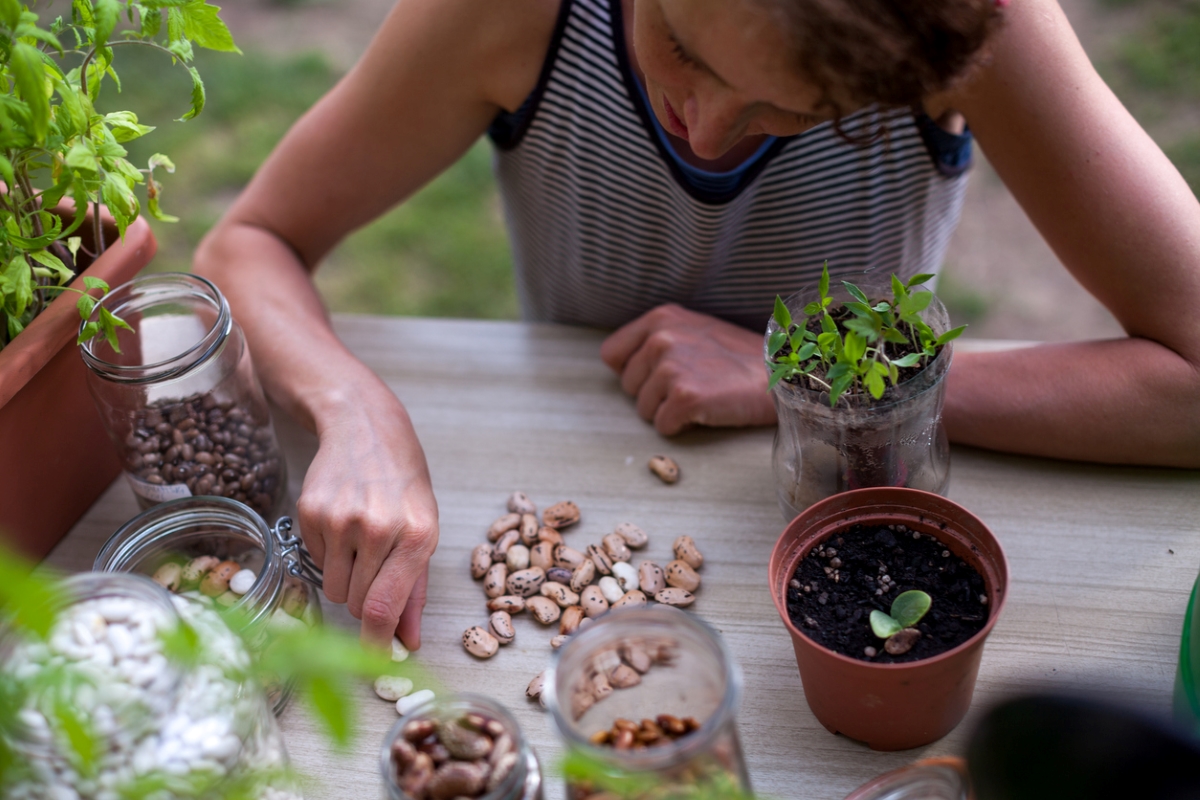
Don’t waste money on designer seed packets. Instead, save and reuse pods from previous “star” producers or those you’ve admired in the gardens of friends and neighbors. Collect and dry the seeds or seedpods from flowers, vegetables, and herbs, and use these for next year’s starter stock. Are you interested in trying out a new crop? Try saving the seeds from the produce you buy in the supermarket.
RELATED: 21 Totally Free Ways to Upgrade Your Home
2. Divide and Replant Spreading Perennials
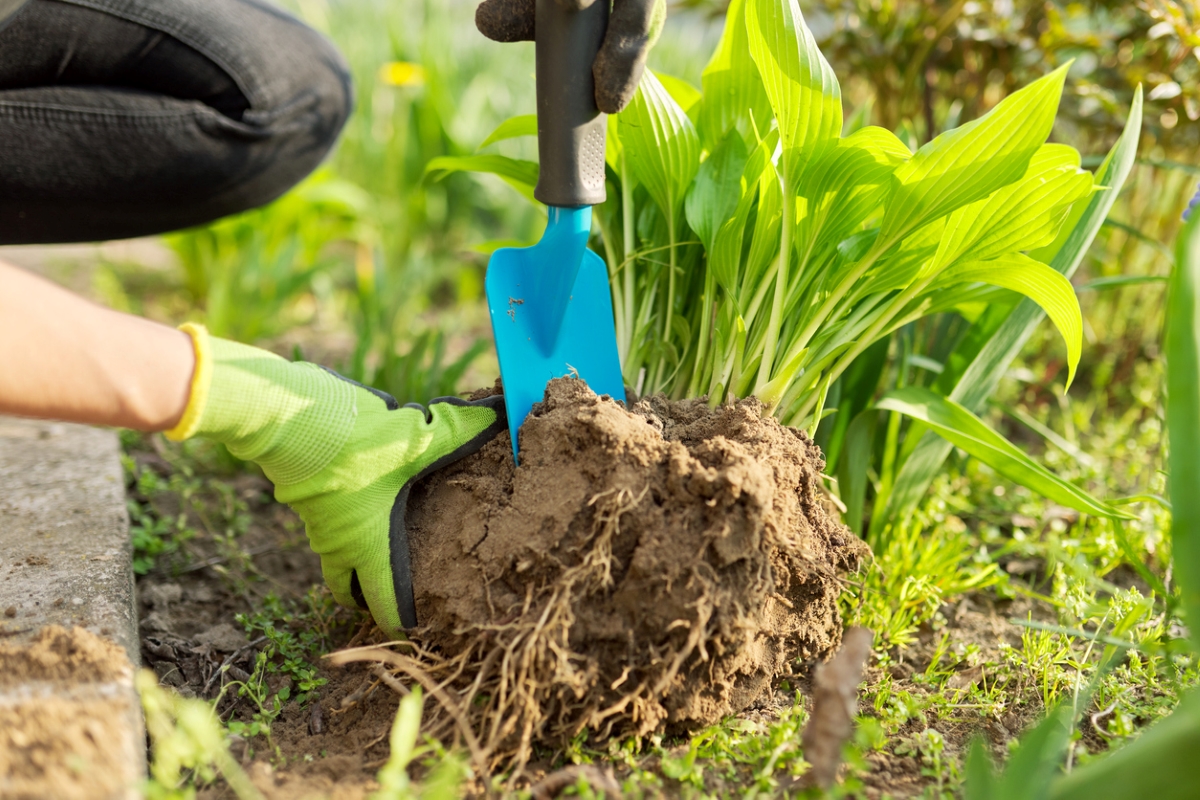
Make your garden the envy of the neighborhood without spending a dime! Perennials thrive when they have plenty of room to spread, so encourage growth by digging and dividing overcrowded plants, transferring the extras to new sections of the garden. If you are just starting a garden, let green-thumbed friends and neighbors know that you will happily accept their divided bulbs or plants.
Perennials that are particularly easy to divide include gaillardia, bleeding hearts, coral bells, and forget-me-nots. Simply dig up a clump, separate into fist-size sections, and replant; water well until new shoots form.
RELATED: How To: Split Hostas for More (Free!) Landscaping Foliage
3. Look for Garden Giveaways
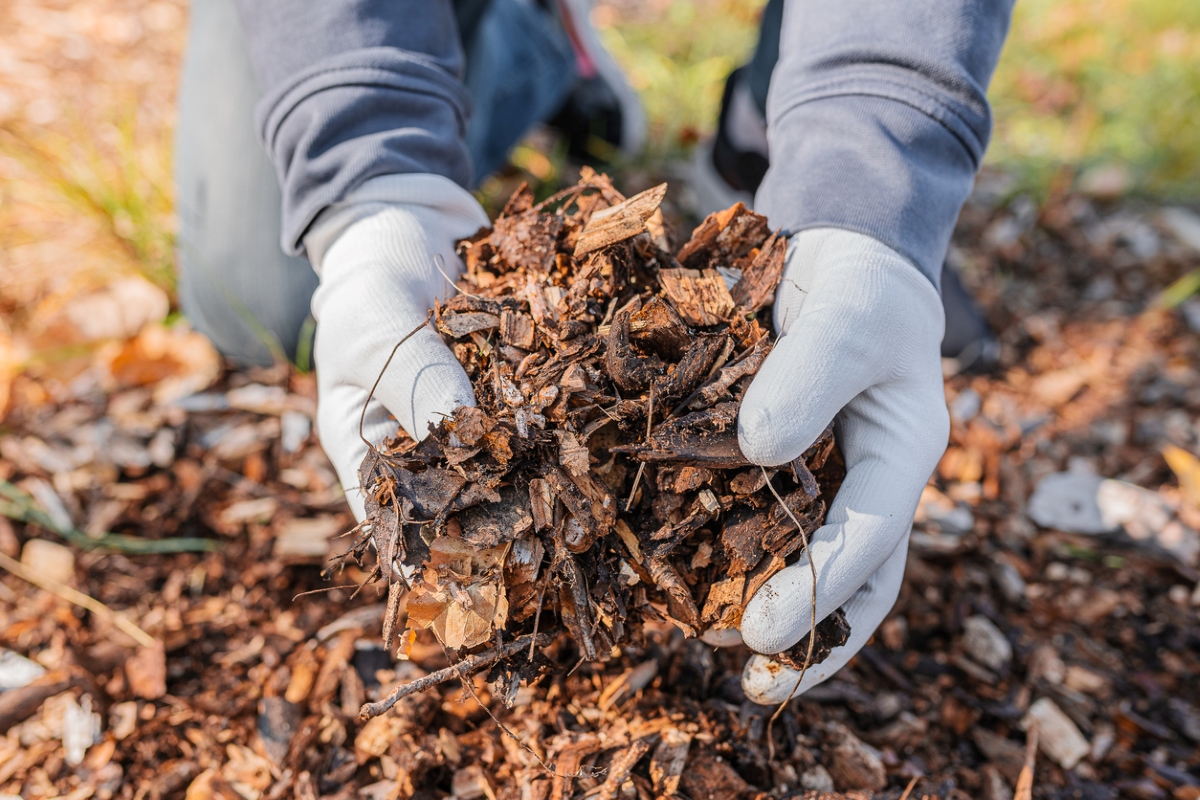
Many municipalities offer free compost, wood chips—or even free soil for gardening. Check with your local parks department or other agency to find out whether they offer free mulch from cast-off Christmas trees, downed tree branches, or municipal cuttings. Use the mulch around trees and shrubs to cut down on weeds and retain moisture.
4. Grow New Plants From Cuttings
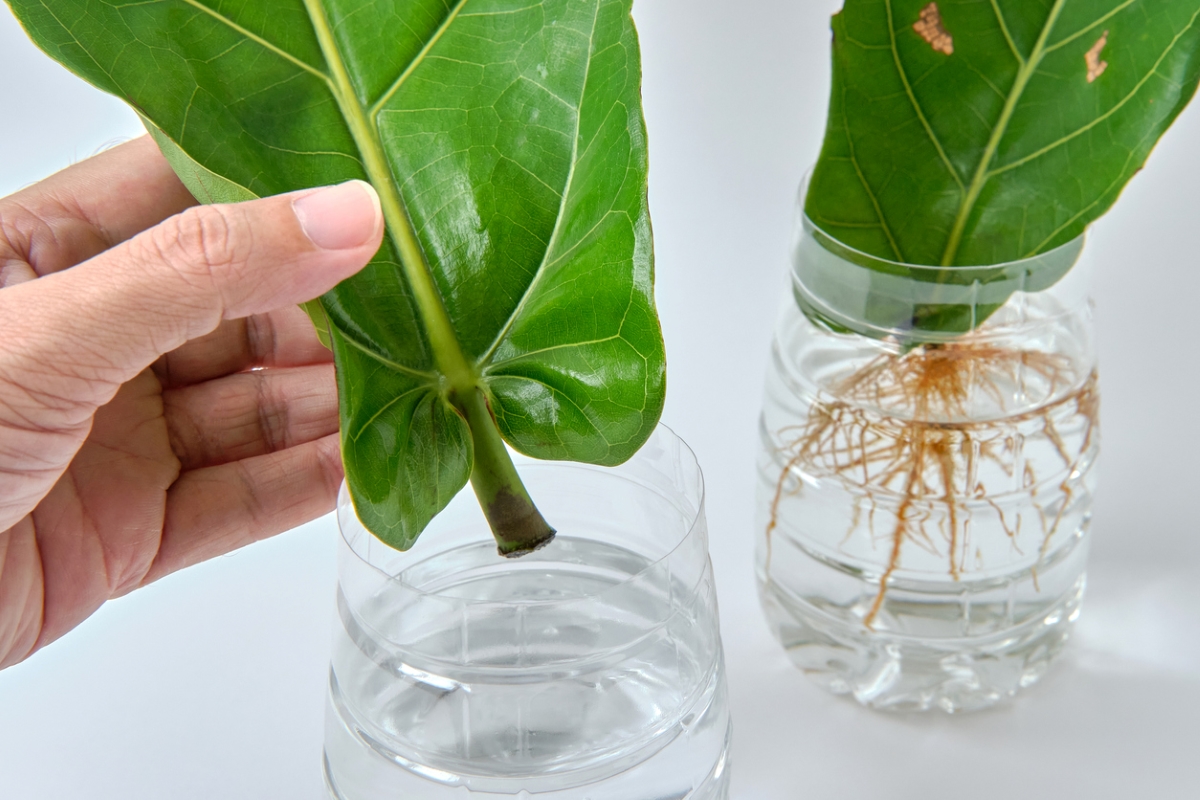
Many flowering plants, such as roses, hydrangeas, gardenias, azaleas, and some varieties of decorative vines, grow best from cuttings. Ask a friend or family member if they will share a cutting so you can start your own plant.
Cut several 6- to 8-inch angled pieces from each plant that you want to propagate. Remove the leaves from the bottom of the stem, scrape the sides slightly near the bottom, and immediately put the scraped ends into a jar of water. Then, dip the cut ends into a rooting solution, and place them in potting soil, firming the soil around the cutting. Keep the cuttings moist while rooting. When new leaf buds appear, transplant to the desired location.
RELATED: 20 Outdoor Plants You Can Propagate From Cuttings
5. Turn Trash Into Rich Compost
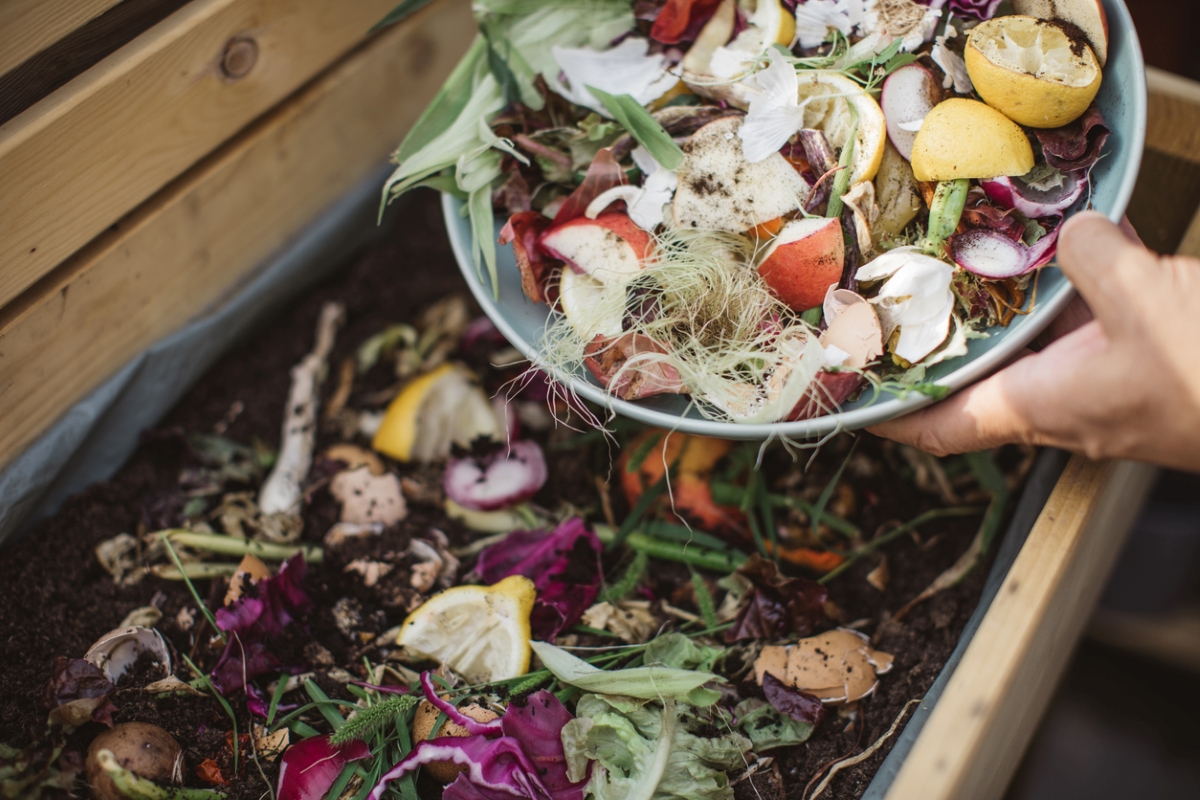
Don’t waste money on costly compost and soil additives: Save your kitchen scraps, grass cuttings, and yard waste to start your own compost pile. After a few months, you’ll be able to use your private stash of nutrients to enrich the soil throughout your new or established garden without spending a dime. Reuse kitchen and yard waste to create a compost pile for free or build a DIY compost bin on the cheap.
6. Grow New Veggies From Kitchen Scraps
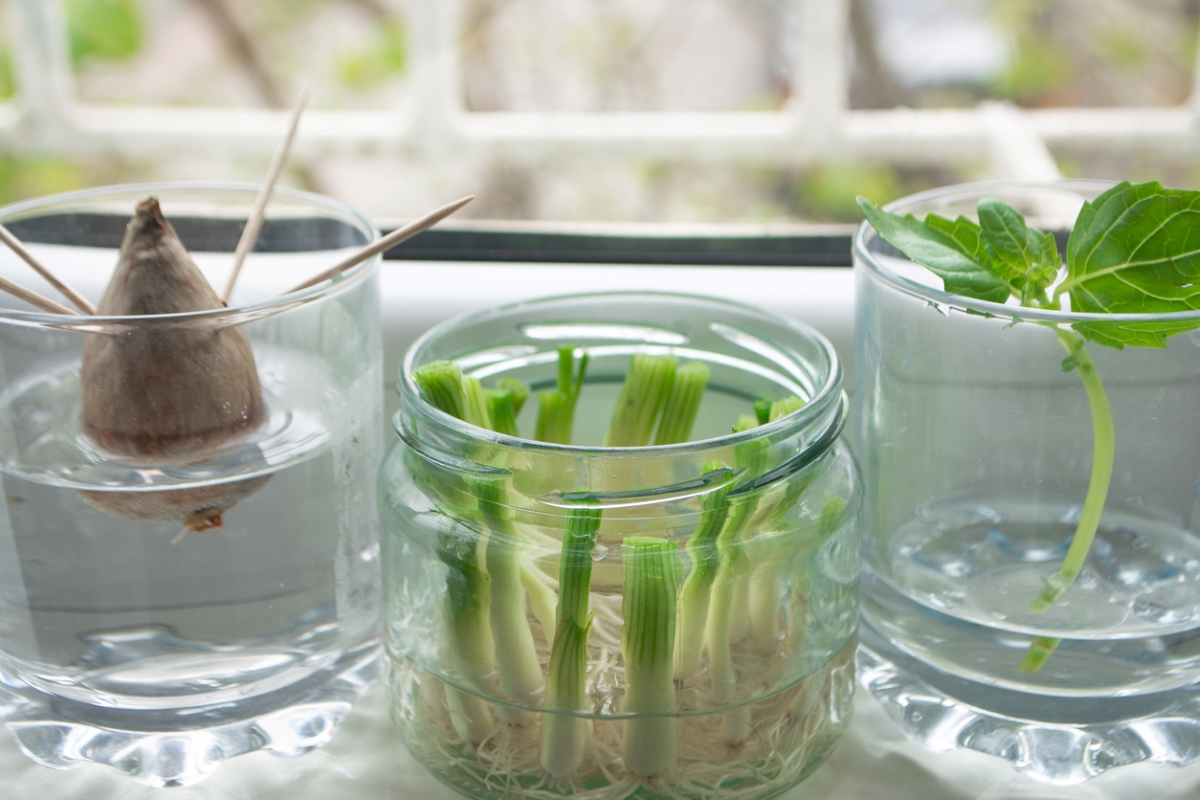
Many supermarket vegetables can be grown from leftover bits or root ends; the list includes plenty of kitchen staples like lettuce, garlic, celery, onions, and more. Start rhizomes and tubers such as ginger and potatoes by planting either the entire vegetable or cutting it into small sections that each have at least two distinct sprouts, or eyes.
For other vegetables, place the root end in a jar, then add enough water to cover the root without submerging the entire plant. Put the jar in a sunny spot, and within 3 to 5 days, you should see some new growth. Transplant to pots, and keep well watered until the seedlings are large enough to move to the garden.
RELATED: 10 Simple Steps for a Zero-Waste Kitchen
7. Kill Slugs With Old Suds
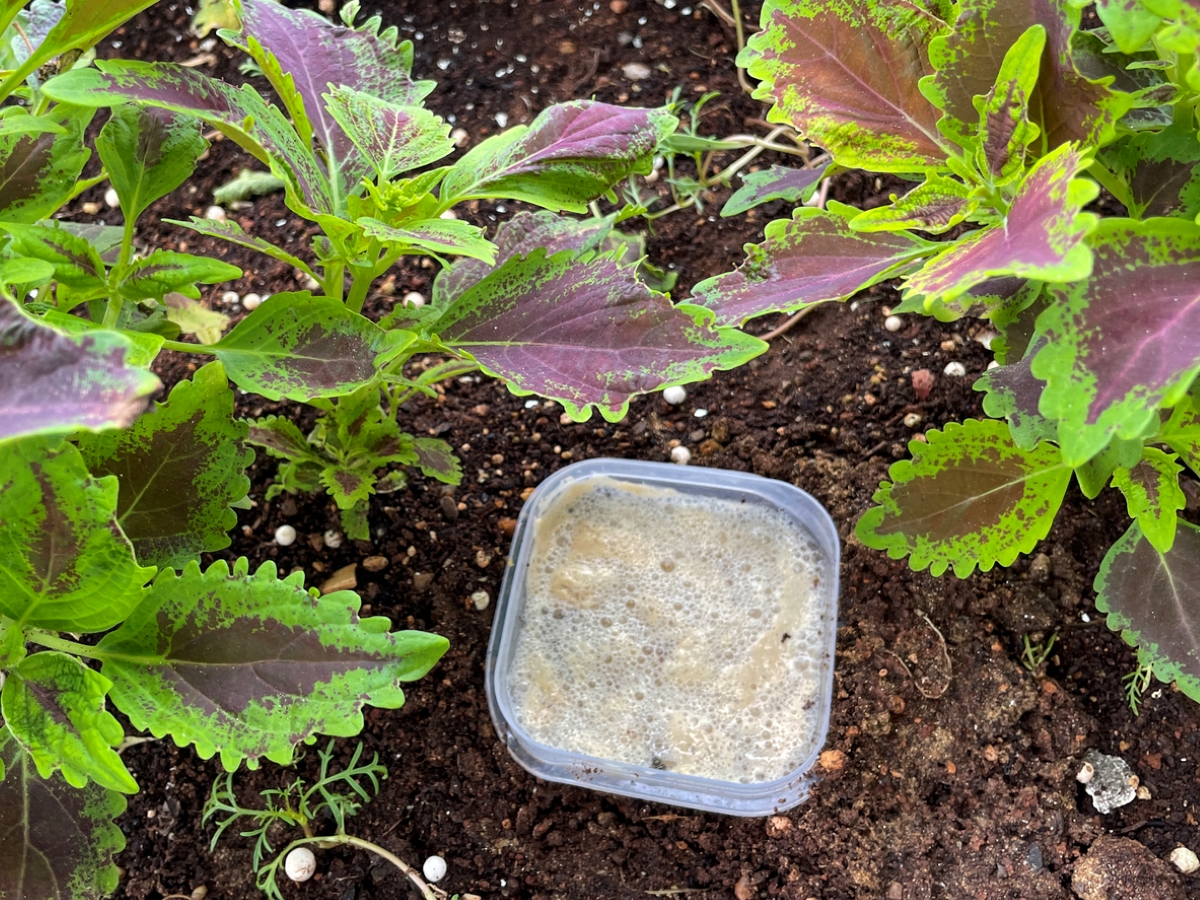
Have some flat or leftover beer in the house? Use it to make your own snail or slug traps for the garden for free. These pests can destroy new plant starts if left unchecked, so pour beer into the bottom of a wide-mouth jar or plastic yogurt or cottage cheese container. Then, dig a hole within a yard or so of the vulnerable plant and place the container in the hole, so that the rim is level with the ground. The slugs will fall in and drown, and you can simply throw the whole mess away when the time comes.
8. Mark Plant Rows With Found Items
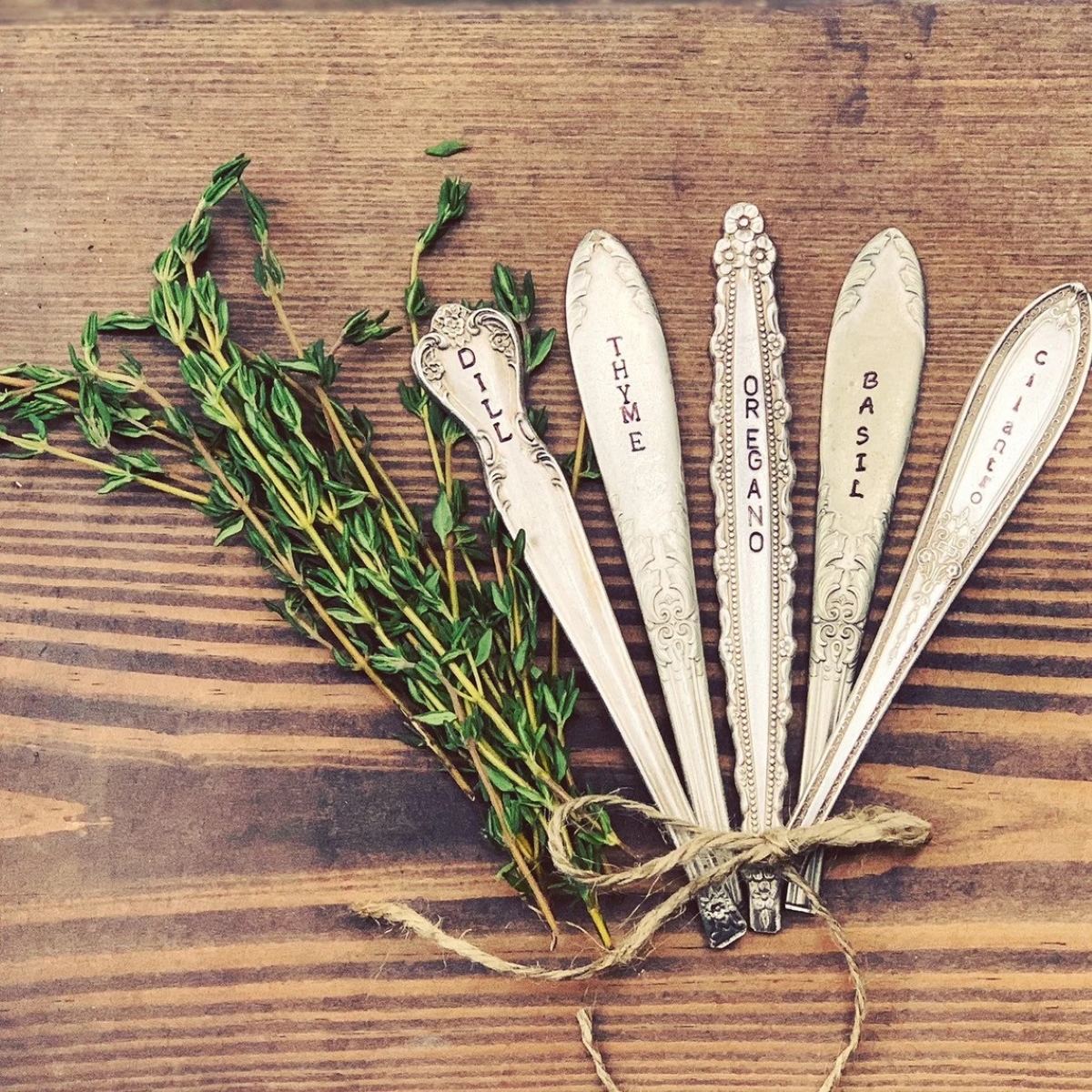
No need to spend money on fancy plant markers to keep track of your crops. Instead, repurpose old silverware or wooden spoons into attractive, functional garden art. Decorate your recycled markers with a paint pen, fingernail polish, or a colored Sharpie; write the names of the plants on the blade, bowl, or handle of the utensil; then stick them into the soil alongside the plants for a kitschy, kitchen-y display.
RELATED: 25 Ways to Beautify Your Yard Without Planting a Thing
9. Fortify Plants With Cooking Water
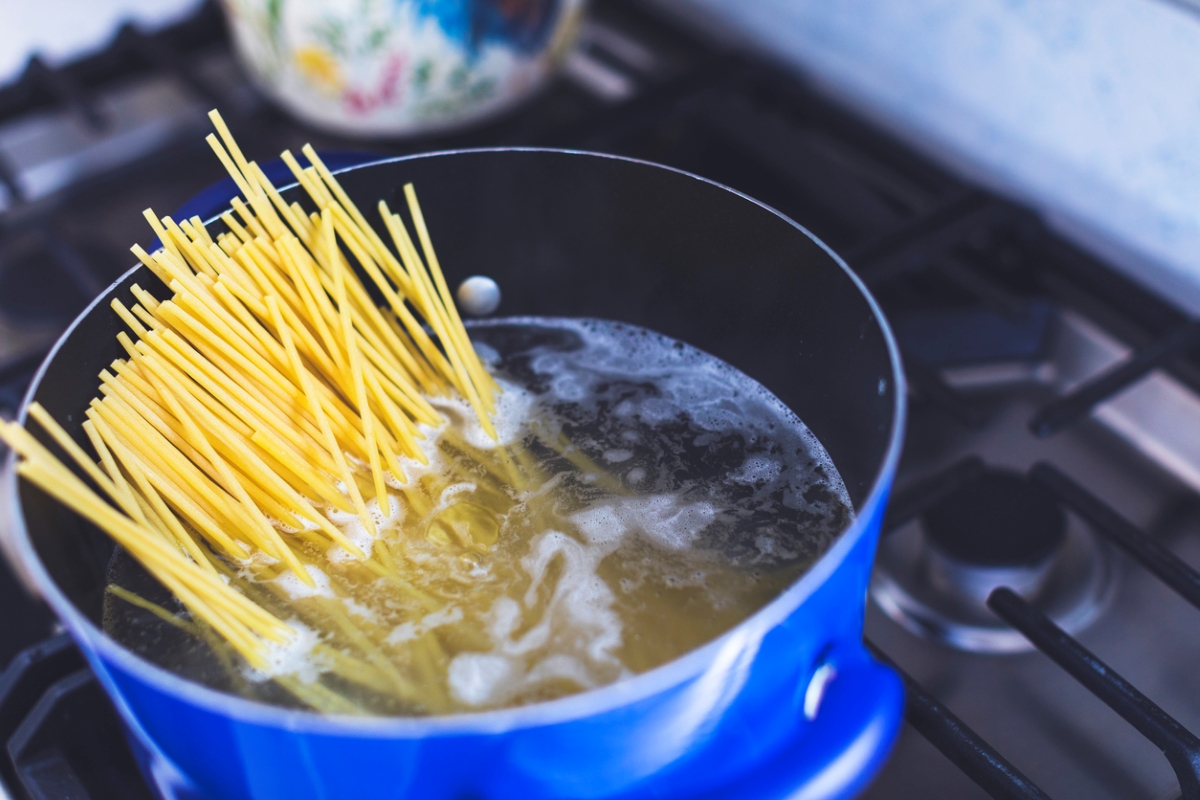
When you boil foods like pasta, potatoes, or veggies, they release nutrients into the water. Think twice before throwing this beneficial broth down the drain! As long as you haven’t added salt to the solution, you can reuse cooking water (once it has cooled down, of course) to give your houseplants or garden a healthful boost, and use the same precious resource twice.
10. Recycle Bottles to Irrigate Plants
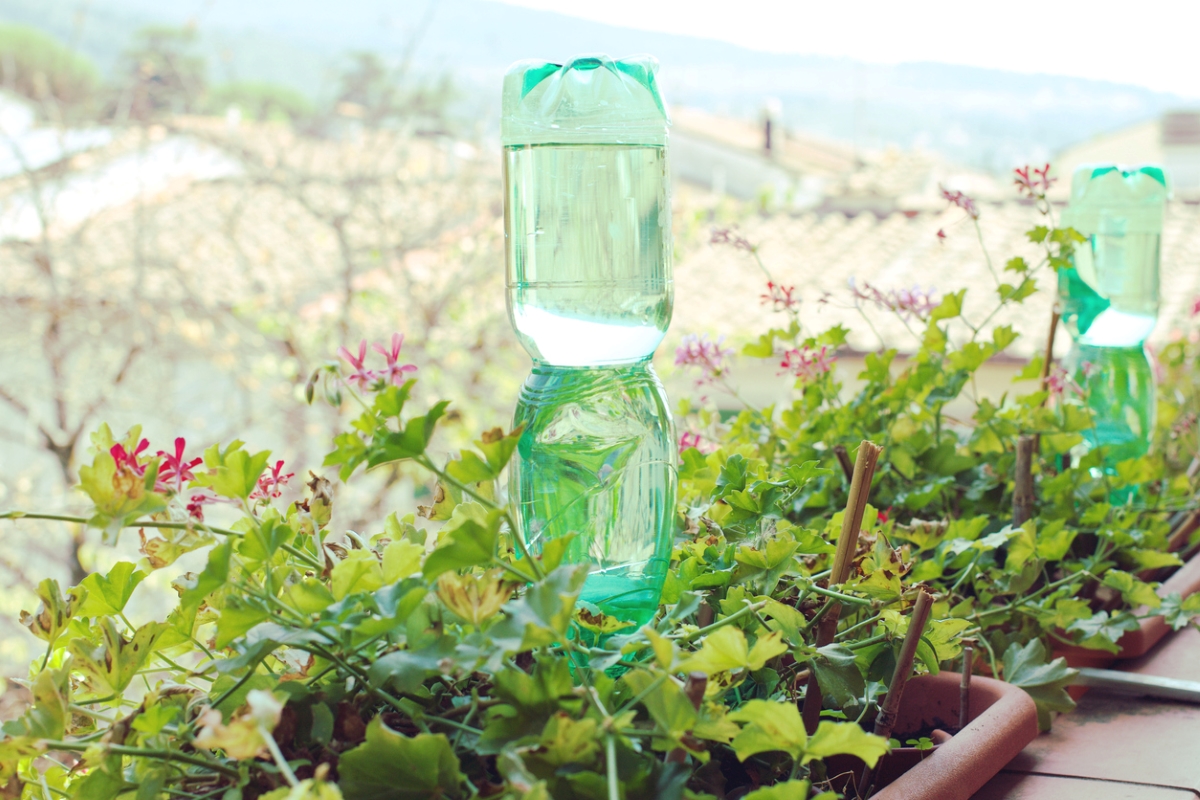
Make a custom mini-irrigation system from nothing more than H2O and your empty water or wine bottles. Drill a few holes in the caps or corks, fill the bottles with water, replace the lids, and then stick them upside down in your pots or in the garden. The liquid will slowly trickle out as needed, saving you water, money, and time as you start new plants.
RELATED: 7 Smart Ways to Save Water in the Yard
11. Ward Off Worms With Toilet Paper Rolls
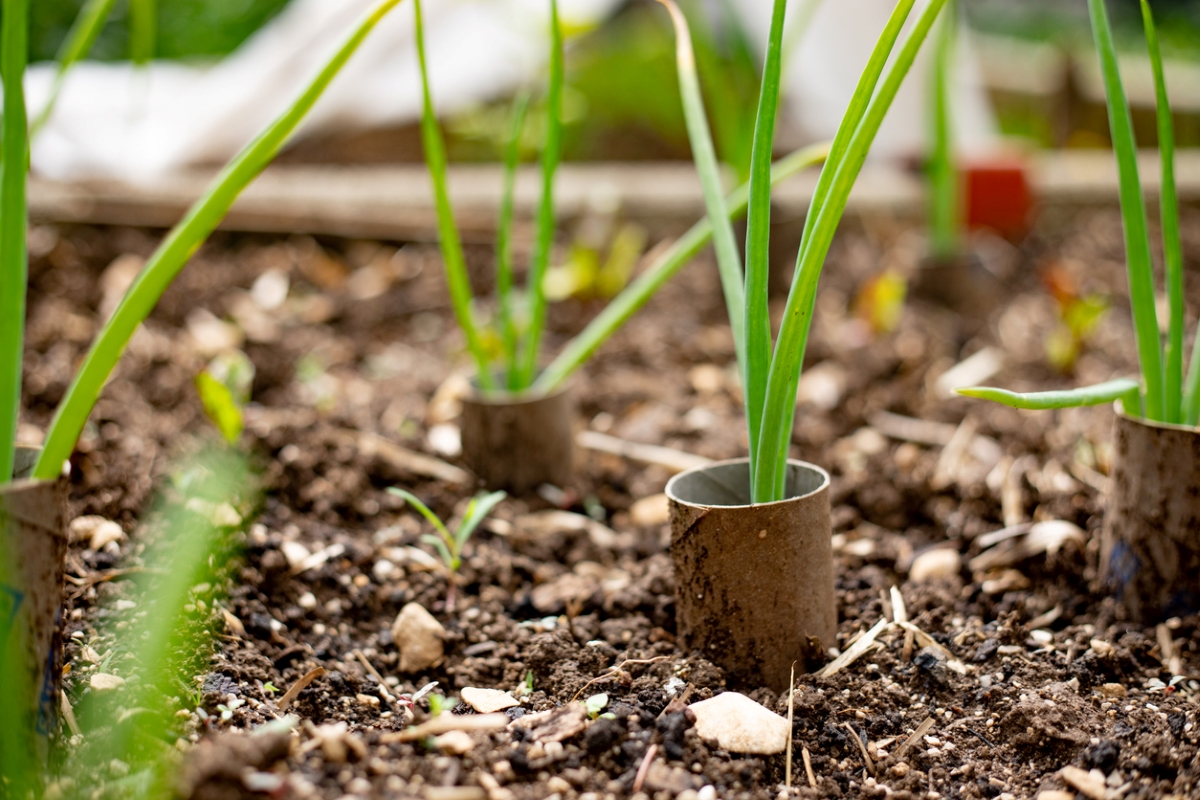
Cutworms can be the bane of newly planted gardens, demolishing weeks of work in a single night. Make cutworm “collars” to keep pests out and protect young seedlings by cutting off the bottom of a yogurt or sour cream container so that it’s open at both ends, or making a collar out of aluminum foil. Sink the collar about an inch into the ground around each seedling, leaving a portion of the container exposed. Once the plants are well established and the stems harden, you can remove the collar.
RELATED: 8 Ways to Combat Garden Pests
12. Layer New Beds With Cardboard
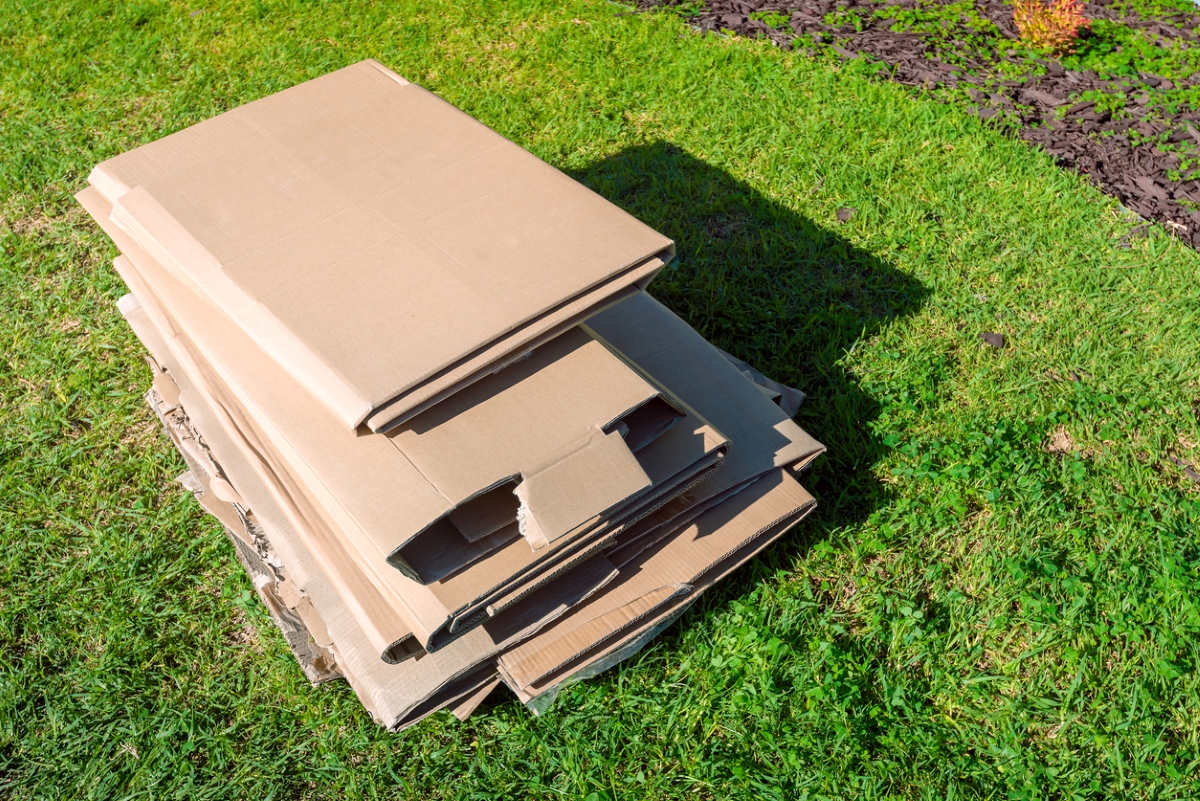
If you’re looking to start a new garden plot, don’t waste time and effort digging up small patches of grass and weeds. Instead, smother the existing growth with newspapers or cardboard. Mark out the garden bed and mow the area as short as possible. Cover it with six to eight layers of newspaper (or a similar thickness of cardboard), and place compost, soil, or mulch on top to keep the paper in place. Yesterday’s news will smother the existing weeds and grass, and then decay into the soil, leaving you with a new bed ready for planting.
RELATED: 10 Outdoor DIYs You Can Do for a Dollar
13. Use Fallen Branches to Support Tomatoes
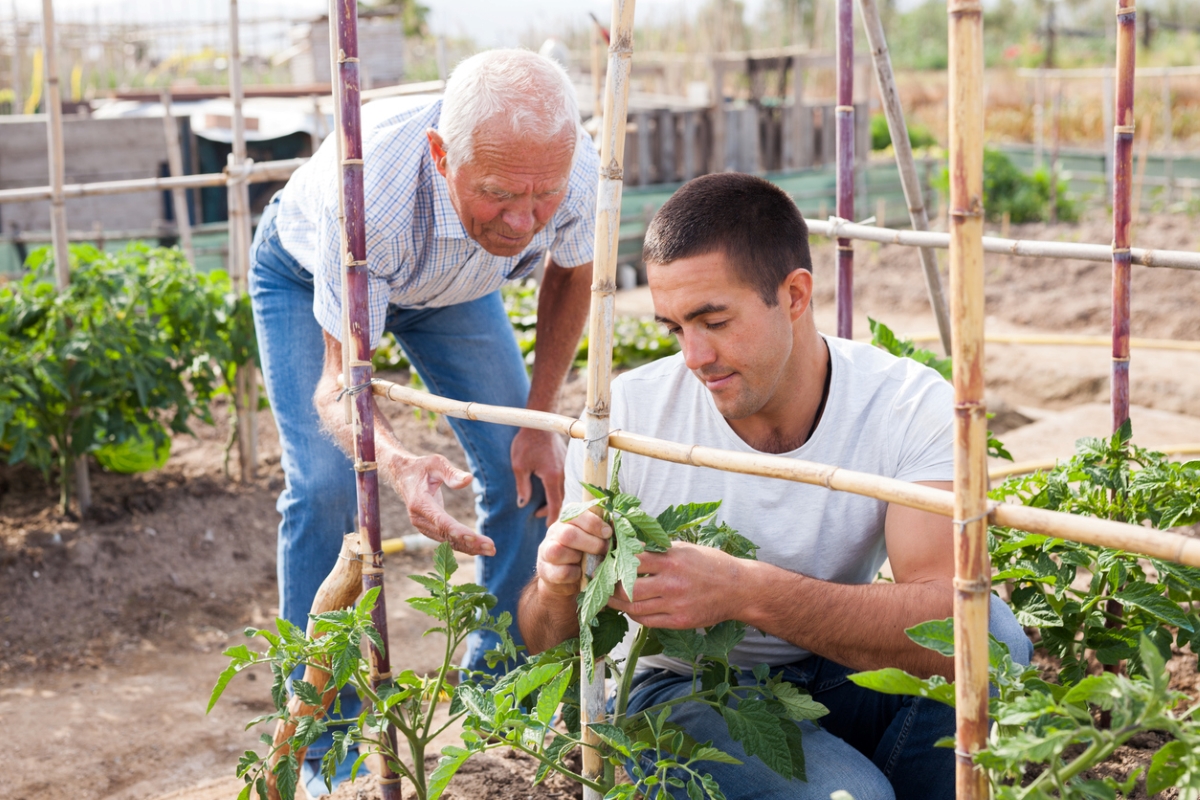
Winter storms invariably leave some dead and broken branches littering the yard. You can gather these together and use them as sturdy trellises, teepees, and tomato cages to support top-heavy plants. Cut strips of worn-out towels or twine into ties that will hold up the veggies without cutting into tender stems.
14. Get Free Advice
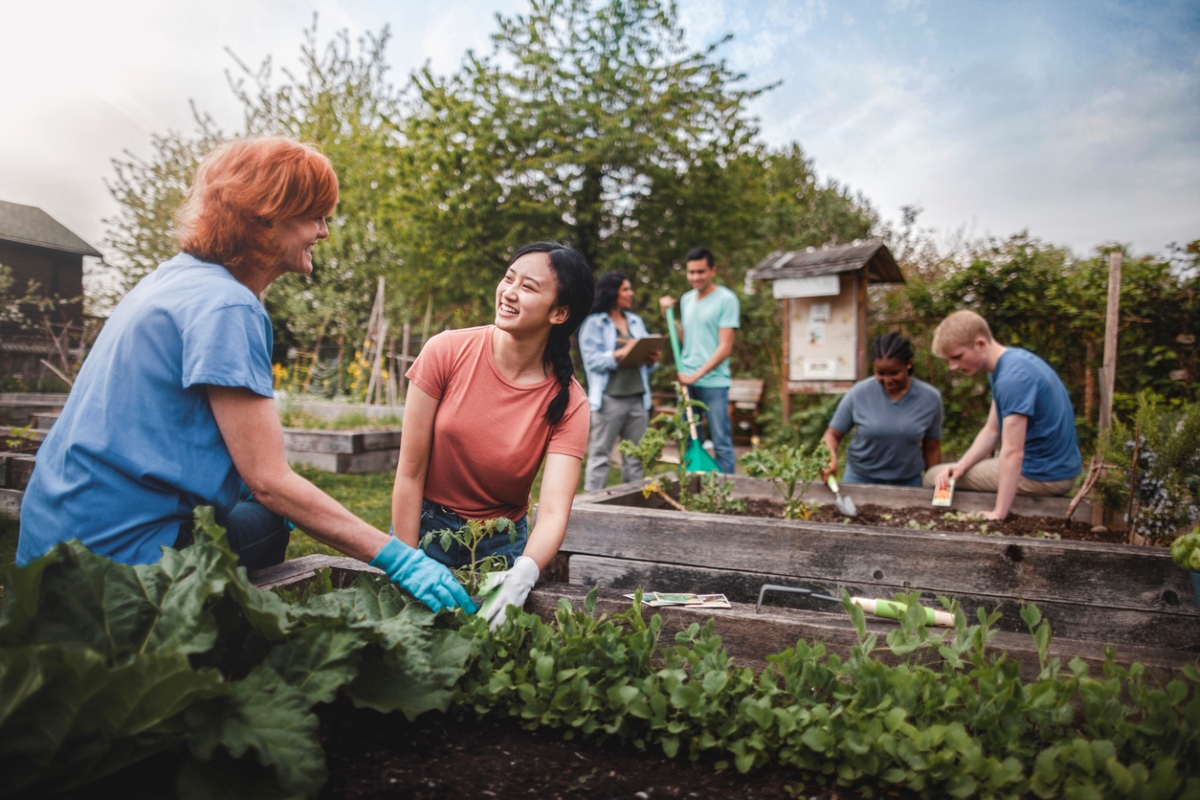
You don’t have to spend money on expensive gardening books or glossy magazines in order to get guidance—just check out your local library. Your local cooperative extension office, another under-used resource, provides free advice from trained master gardeners who know which plants will or will not do well in your area. Many home and garden centers offer free lectures about gardening products and techniques, as do local garden clubs. And, of course, you can always turn to Bob Vila for help!
RELATED: Buyer’s Guide: The Best Gardening Books of the Year
15. Join a Seed-Sharing Group
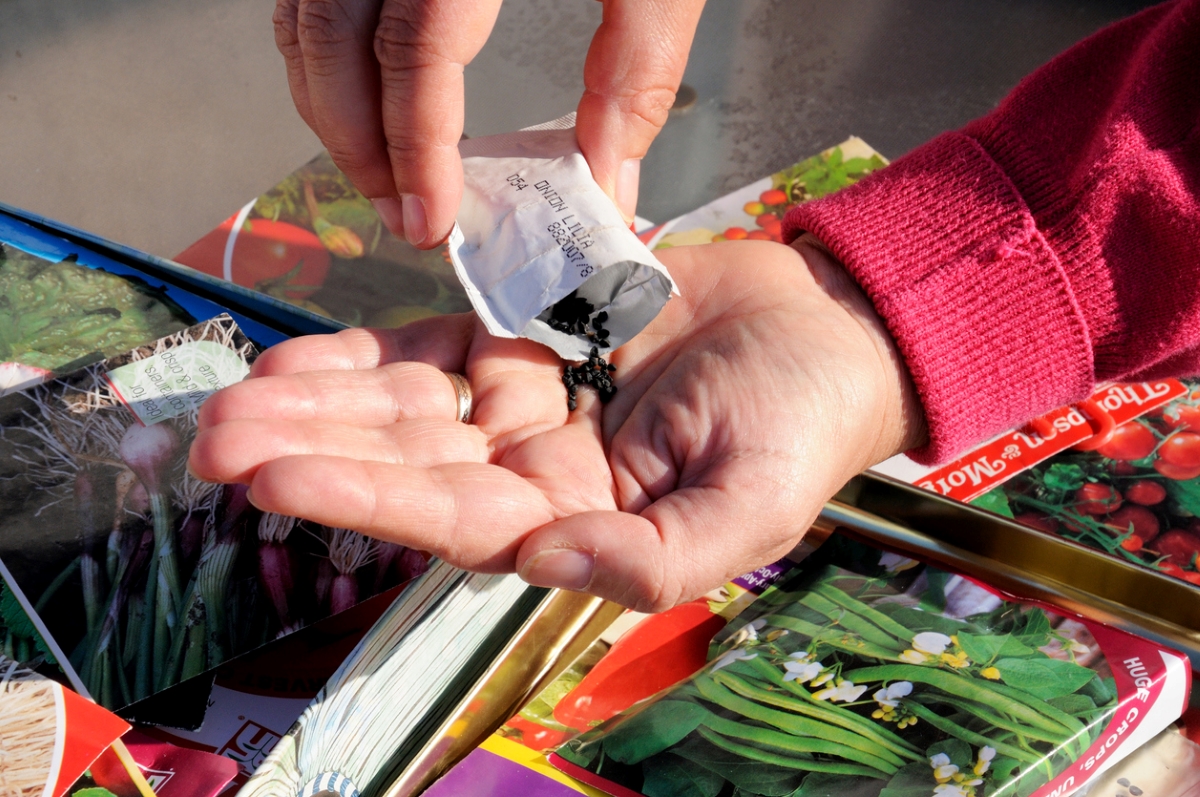
Here’s a great way to plant yourself in the local gardening scene and fill your beds with diverse crops: Start sharing seeds. Most gardeners will help newbies if you ask questions, show enthusiasm, and pay it forward. Many social media groups are more than willing to share their seeds, as will some local community groups, including some libraries. Check out some popular seed-sharing resources like Seed Savers to learn what’s available.
16. Use Paper Towel Rolls as Starter Pots
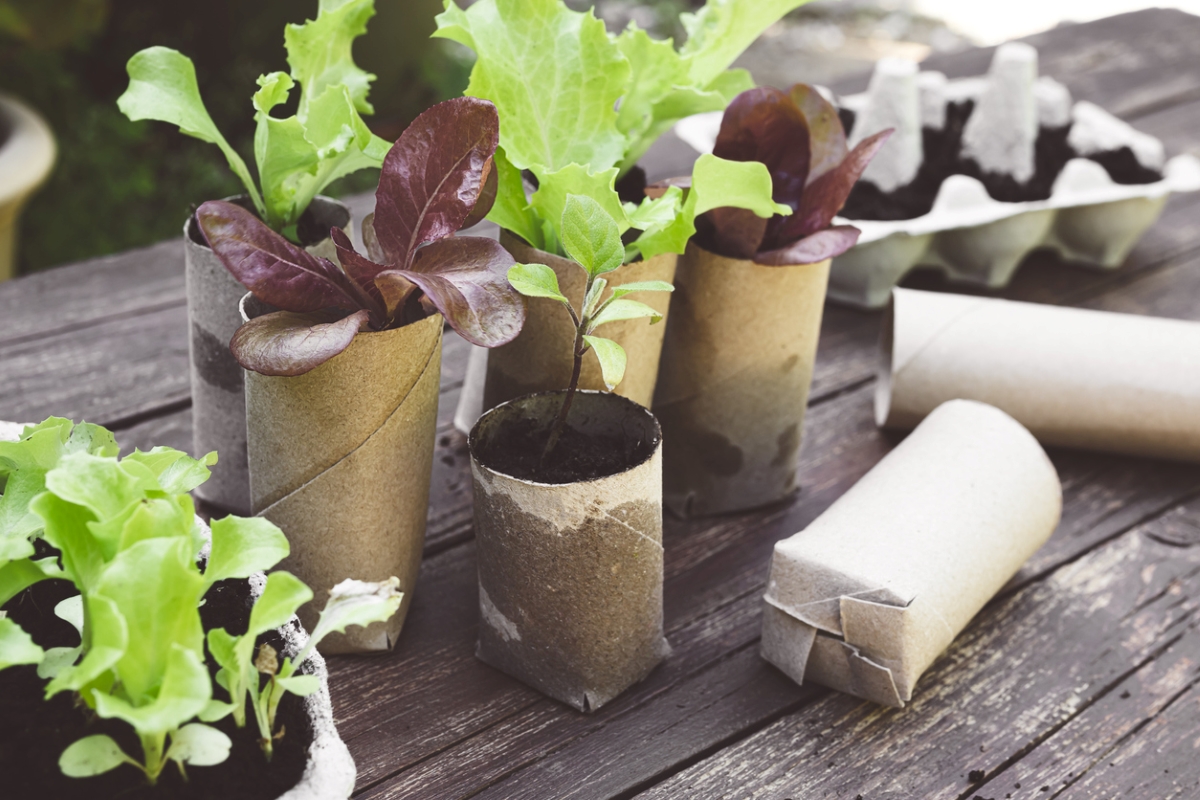
Everyone has paper towel or toilet paper rolls for recycling. Instead of chucking them into your blue bin, repurpose a few rolls into starter pots for your plants. Cut them into 1-inch-thick sections, and about twice as long if you want your pots to have a bottom—simply fold the roll inwards to create the base. Fill these paper pots with soil and seeds, watering regularly. When your seedlings are ready for planting, there is no need to take them out of these pots. Since cardboard is biodegradable, it will naturally break down in the garden bed.
RELATED: 13 Kitchen Leftovers That Are Good for Your Plants
17. Give Your Soil a Sip of Coffee or Tea
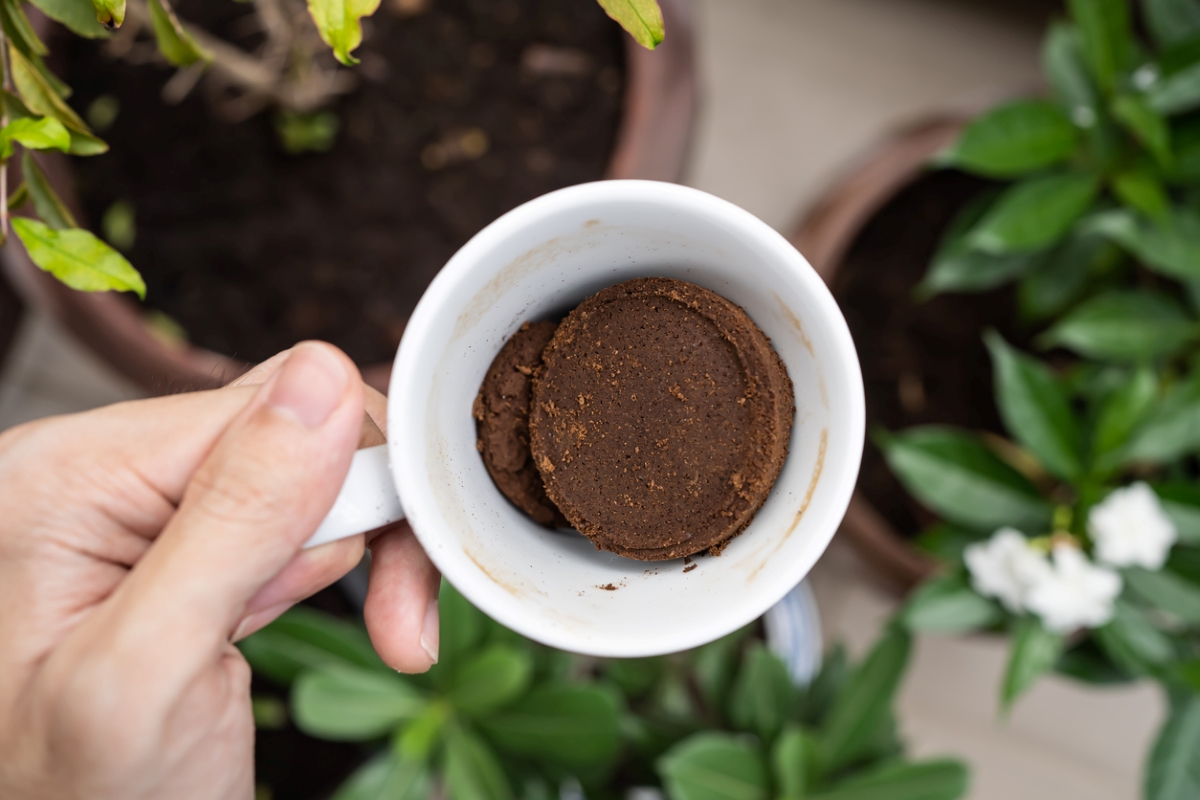
Most people enjoy a good cup of coffee or mug of tea, and so do your plants, as they gain many advantages from your leftovers. Add coffee grounds and tea leaves as soil amendments when you prepare a new garden bed. If you don’t drink coffee, many local coffee shops give their grounds away for free.
Like coffee grounds, tea leaves contain helpful nitrogen for soil, but plants cannot access the nutrients directly, so don’t expect them to fertilize your garden plants. However, feel free to add them to soil in general or to your compost pile. Do a little research to find out other ways that your favorite type of tea could benefit your garden. Many tea leaves, such as from green or black tea, can be natural pest repellents. Other types, like chamomile, are said to help ward off fungi.
18. Get Creative with Old Wooden Pallets
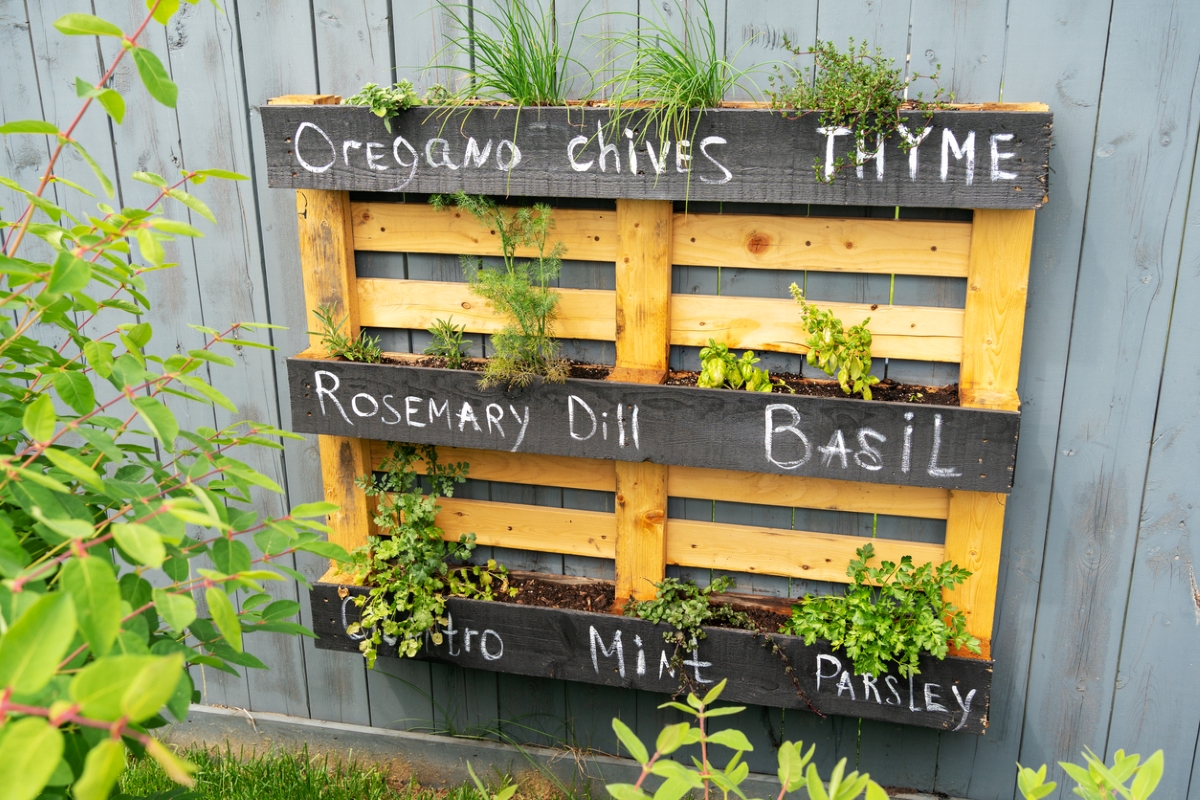
Many warehouses will give away their old wooden pallets if you ask for them. The price of wood may make you rethink plans for your garden, but free pallets can give DIYers options to make their gardens more impressive. Turn these pallets into vertical gardens or raised planter beds, so no matter how much or how little space you have available, you can still start a garden.
RELATED: 20 Tips for Keeping All Critters Out of Your Yard and Garden
19. Repurpose Food Containers as Mini Greenhouses
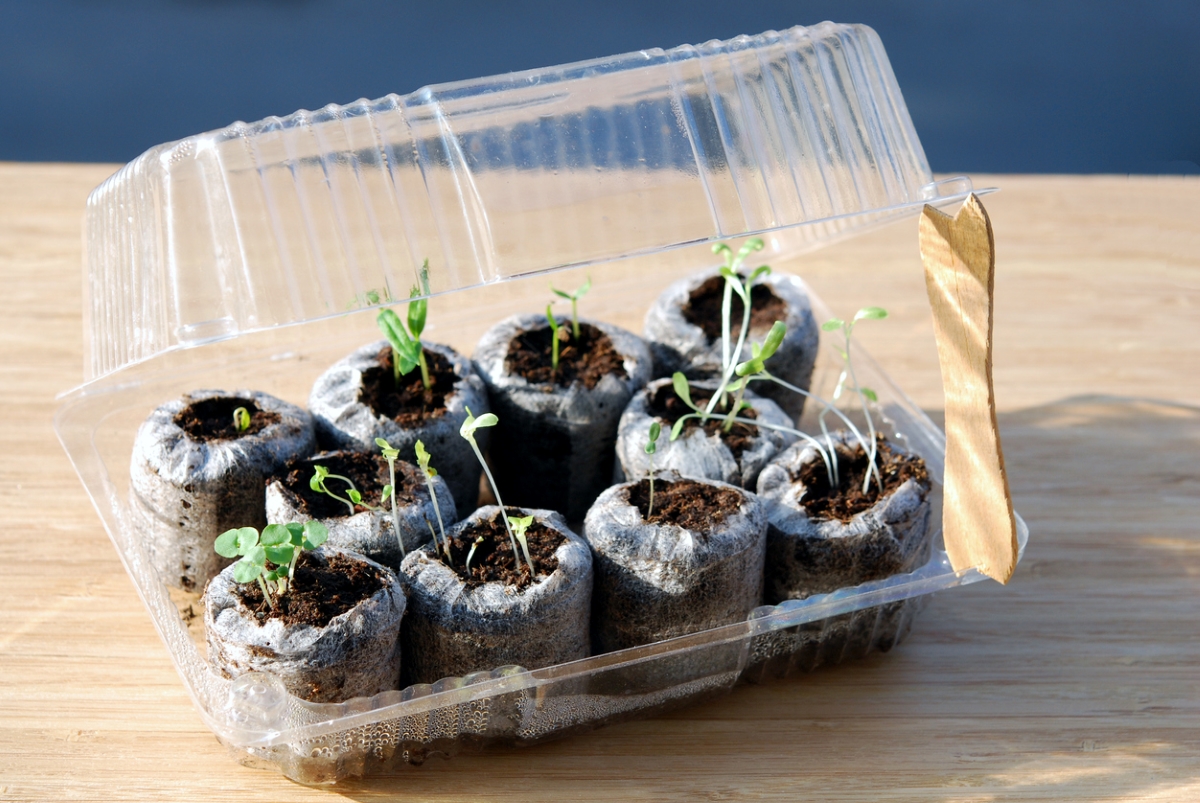
You can create a mini greenhouse for your new plants using strawberry or bakery clamshells, or other plastic food containers with built-in lids. Start by adding soil, and then make a few holes in the lid and plant your seeds. Mist regularly to keep the soil moist and give your new plants an easy start. Establishing these mini greenhouses allows you to start your seedlings indoors when the weather is still too cold for successful outdoor planting.
20. Add Some Spice to Your Garden
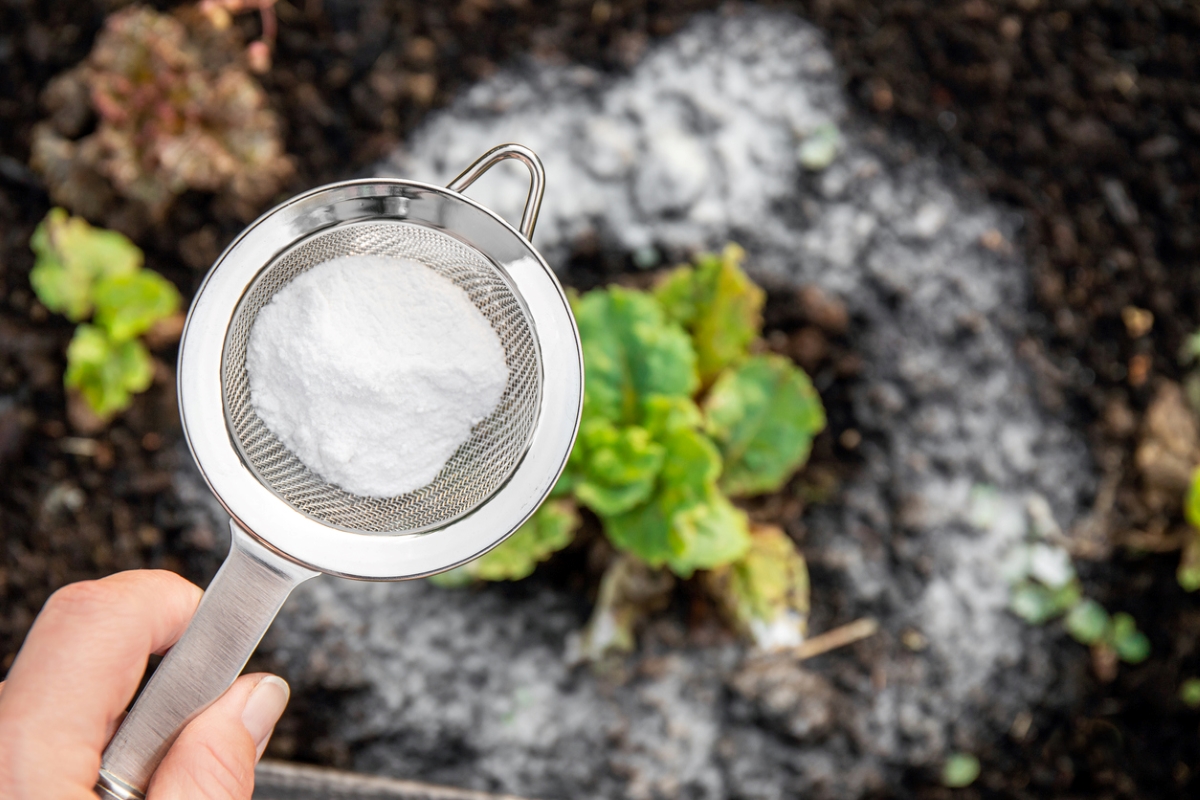
Your spice cabinet can unlock valuable ways to protect new plants, and you likely already have many helpful ingredients in the cupboard. Sprinkling cinnamon on soil around plants can help prevent mold in the soil, cayenne pepper powder helps deter deer and other furry pests, and black pepper can help prevent ants, to name a few. Before adding anything to your garden (whether spices or other additions), always double-check that it won’t harm your plants before putting it in your beds.

